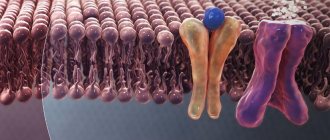- Why do you feel sick in the morning?
- Causes of nausea after eating
- How to determine the exact cause of nausea?
- What to do if the gastroenterologist did not identify any violations?
- Treatment
Nausea, a feeling of heaviness in the stomach, heartburn are familiar to everyone. If you overeat on fatty delicacies at the holiday table, unpleasant sensations will not take long to appear. Drank expired kefir or too much alcohol - nausea is right there. The reasons are simple and clear. In the first case, there were not enough enzymes to digest food, and the liver had to work at its limit. In the second, toxic substances entered the body, causing poisoning. These symptoms are unpleasant, but they are temporary. And, as a rule, they pass after a few days or even hours. But what to do if you feel sick all the time? We need to figure out the reasons!
Why do you feel sick in the morning?
Waking up every day with a feeling of nausea, which makes you refuse breakfast and take a long time to “come to your senses,” may be associated with nocturnal gastroesophageal reflux (reflux of bile into the esophagus). In itself, it is not a pathology, since normally it occurs mainly after eating and does not cause discomfort. To suppress it, the body includes compensatory antireflux mechanisms.
But if an unpleasant symptom is observed frequently and lasts for a long time, then we can talk about gastroesophageal reflux disease or diseases of the gastrointestinal tract. An abdominal MRI will help determine the exact cause and make a diagnosis.
Feeling of discomfort in the stomach
Unpleasant sensations manifest themselves individually, but there are common symptoms:
- nagging pain or burning in the upper abdomen;
- heaviness;
- feeling of quick satiety;
- nausea or vomiting;
- heartburn;
- flatulence or increased gas production;
- feeling of a full stomach.
The presence of even one of the symptoms indicates that not everything is in order with the digestive organs.
Discomfort in the stomach is a frequent companion to the modern rhythm of life and poor eating habits. The main negative factors include:
- Stress.
Constant rush, nerves and stressful situations lead to disruptions in the functioning of the gastrointestinal tract; - Tobacco.
Cigarettes have a negative effect on the mucous membrane of internal organs involved in the digestion process; - Alcohol.
With regular consumption of alcoholic beverages, you may encounter not only individual symptoms of stomach discomfort, but also serious diseases; - Violation of nutrition rules:
snacking “on the run”, eating low-quality foods, overeating, abuse of fast food, predominance of fatty and fried foods in the diet, violation of heat treatment rules, lack of a diet; - Lactose intolerance.
It is common to many, but is especially common in infants and older people. The fact is that with age, the body secretes less and less enzymes that are responsible for processing lactose (this is a disaccharide contained in milk). Due to the inability to break down sugar in the stomach, fermentation processes begin and gas is released in large quantities. Which is the main cause of discomfort.
Frequent consumption of too hot and strong coffee or tea, or highly carbonated drinks can also lead to stomach problems.
A common manifestation of discomfort is a feeling of a full stomach.
How to determine the exact cause of nausea?
The range of possible violations, as we see, is quite rich. Nausea can be caused by the liver, gallbladder, biliary tract, pancreas, stomach, small intestine, duodenum, lower esophageal sphincter, and gastroesophageal junction.
Problems can be caused by inflammatory processes, erosions, ulcers, cysts, tumors, and gallstones. The cause may be stenosis (narrowing) of the gastric outlet, fibrosis, cirrhosis and fatty liver degeneration (hepatosis). Patients are often diagnosed with functional disorders.
To establish the gastroenterological cause of nausea and to exclude the presence of a tumor causing dysphagia (impaired passage and stagnation of food), it is recommended to do an MRI of the abdominal cavity.
A highly informative study allows the patient not to run around to doctors’ offices, checking each organ separately. And immediately simulate a three-dimensional image of each organ, see its layer-by-layer sections. And get an idea of the overall picture: the thickness and changes in the walls of the stomach, the condition of the gallbladder, the size of the liver, pancreas, duodenum, esophagus, and track their functions in real time. MRI provides better visualization of the gastrointestinal tract than CT, so this method is preferable in most cases.
The study can be done without contrast and with contrast. In the second case, the price of an abdominal MRI will be higher, but the study will provide more accurate information on tumor tumors.
What to do if you have stomach discomfort
Preventive measures and treatment of discomfort in the stomach will largely depend on the cause of the pathology.
If the symptom appears after eating, then you should pay attention to your eating habits:
- You shouldn't rush at the table. Food should be chewed thoroughly;
- Meals should be increased to 5-6 times a day. Portions should be small, preferably eaten at the same time;
- Reduce consumption of fried, fatty and overly salty foods;
- Don’t “seize the problem.” A stressful situation can lead to overeating, which has a bad effect on the gastrointestinal tract;
- Do not eat very cold or hot food. A sharp temperature change can lead to irritation of the gastric mucosa. Warm food should be preferred;
- Alcohol is a bad companion for lunch or dinner;
- Discomfort may also occur when consuming foods high in preservatives, dyes and flavors;
- It is better to stop drinking carbonated drinks.
The feeling of a full stomach after eating generally has the same reasons as discomfort: poor diet, allergies (for example, lactose intolerance), alcohol and stress. It can also occur in pregnant women due to increased stomach acidity, and is then accompanied by nausea. In addition, the fetus itself can put pressure on internal organs, including the stomach and intestines.
Discomfort and feelings of fullness can be overcome quickly and without problems if you know which medicine gives the desired effect.
What to do if the gastroenterologist did not identify any violations?
It also happens that after an examination, the gastroenterologist tells the patient that no pathologies have been identified on his part. However, such good news does not mean that the person who came with complaints is in great health.
The etiopathogenesis of nausea may be associated with:
- vascular pathologies;
- hypertension;
- diseases of the inner ear;
- endocrine disorders;
- pathologies of the brain and central nervous system;
- head injuries and post-traumatic syndromes;
- viral, bacterial and parasitic infections (often not related to the gastrointestinal tract, but affecting the lungs, ENT organs, and central nervous system).
Diagnostic stages
1. Consultation with a therapist or gastroenterologist.
To find out the causes of nausea, it is important to study the sensations accompanying it, the conditions for its occurrence and other details. A consultation with a therapist or gastroenterologist with a detailed collection of complaints and anamnesis will help determine the direction of the diagnostic search, outline the necessary studies, tests and consultations with other specialists.
2. Examination.
To identify diseases of the gastrointestinal tract that can cause severe nausea, the following diagnostic methods are used at the Yauza Clinical Hospital:
- a full range of laboratory tests of blood and stool,
- endoscopy at partner clinics (gastroscopy, colonoscopy),
- ultrasound diagnostics (internal organs, blood vessels),
- their combination (endo-ultrasound)
- X-ray examinations, MRI and CT,
- according to indications - a cancer search program - MRI of the whole body (MR - diffusion), genetic testing for predisposition to oncological processes and blood testing for tumor markers, a complex of neurological diagnostics, etc.
Treatment
It is recommended to adjust your diet and diet, and, if possible, adjust drug therapy (if medications are the cause of constant nausea). But the main condition for the successful treatment of nausea is an accurate diagnosis of its cause and its elimination. All conditions have been created for this in our hospital.
An individual, comprehensive approach to the treatment of each patient almost always helps to get rid of an unpleasant symptom. For the period of treatment or in case of an unavoidable cause, for example, when using vital medications that provoke nausea, antiemetic drugs are prescribed, which significantly alleviate the condition.
If you experience nausea after eating or not related to eating, contact gastroenterologists or therapists at the Yauza Clinical Hospital. Our specialists will help you identify and eliminate the cause of the unpleasant symptom and return you to good health.
You can see prices for services
Stomach pain after eating
General information
The most common cause of stomach pain is the food we eat. The intensity of stomach pain due to stomach diseases can vary. In patients with chronic gastritis, the pain is less intense. Therefore, the patient may not pay attention to it for a long time. Low-intensity pain can also be observed with gastric ulcers and stomach cancer.
However, with a gastric ulcer, and especially with a duodenal ulcer, the pain can be severe, sometimes very strong, forcing the patient to immediately take measures to alleviate the condition.
The main causes of stomach pain after eating
This characteristic of the pain syndrome has very important diagnostic significance. First of all, it is necessary to pay attention to the connection between pain and food intake and the nature of the food taken.
With chronic gastritis, there is usually an early onset of pain - almost immediately after eating, especially if the food is coarse and sour. Depending on the level of acidity of gastric juice, you may experience:
- heartburn;
- sour belching;
- constipation;
- nausea;
- belching with an unpleasant odor;
- flatulence;
- bloating;
- diarrhea.
The pain can be of different types: pulling, pressing, burning, cutting. This also depends on many factors: stomach filling , the presence of cramps, acidity, individual reaction to foods and others.
Inflammation of the mucous membrane of the stomach and the duodenum directly extending from it is called gastroduodenitis . This disease is long-term. It either intensifies or subsides. It is characterized by periodic pain, varying in strength and duration, which is localized “in the pit of the stomach” and around the navel. Abdominal pain usually occurs after eating. They are accompanied by a feeling of fullness and heaviness in the upper abdomen. Belching sour, less often rotten. With a stomach ulcer, the same pain occurs after eating, but no later than 1-1.5 hours after eating. Early stomach pain is characteristic of ulcers of the upper stomach and occurs half an hour to an hour after eating. They gradually intensify as the concentration of hydrochloric acid . Over time, food moves from the stomach to the duodenum, the acidity of the gastric contents drops and after 1-2 hours the abdominal pain decreases.
With a stomach ulcer, the pain is localized on the left side or along the midline of the abdomen, in its upper part. If the patient has a duodenal ulcer, pain occurs to the right of the midline. Sometimes the pain can be retrosternal or radiate to the back. The nature of the pain can be very diverse. In a third of patients, abdominal pain is very severe. For the most part, they are dull, aching, or drilling, stabbing, cramping. With a pyloric canal ulcer, pain appears 1-1.5 hours after eating. Pain in the stomach after eating is typical for stomach cancer, signs of an oncological process in the body should be taken into account
- sudden weight loss;
- lack of appetite;
- stomach ache;
- discomfort in the abdomen above the navel;
- feeling of fullness in the stomach after eating a small amount of food;
- heartburn;
- indigestion;
- nausea and vomiting;
- increase in belly size
- increasing pallor of the skin.
Foods that have a high alkaline buffer capacity (boiled meat, dairy products, except fermented milk) cause pain to appear later. Rough plant foods, vegetable marinades, brown bread, and canned food cause pain to appear earlier. The so-called early pain can cause the patient to fear before eating. Patients begin to refuse food.
A different picture is observed in patients suffering from duodenitis , duodenal ulcer. Their pain is “hungry”, nocturnal in nature and is relieved by taking liquid (milk) or soft (porridge, mashed potatoes, minced meat or fish) food, and drinking soda. A gastroenterologist will be able to deal with this problem and advise the necessary diet for the body.
Hunger is your body's way of letting you know it needs more food. However, many people feel hungry even after eating. Many factors, including your diet, hormones, or lifestyle, may explain this phenomenon.
This article helps explain why you might feel hungry after eating and what you can do about it.
Causes and solutions
There are several reasons why some people feel hungry after eating, writes Healthline.
Composition of food
First, it may have to do with the nutritional composition of your food.
Meals that are high in protein make you feel more full than meals that are high in carbohydrates or fat, even if they contain about the same amount of calories.
Numerous studies have shown that high protein foods are better at stimulating the release of fullness hormones such as glucagon-like peptide-1 (GLP-1), cholecystokinin (CCK) and peptide YY (PYY).
Additionally, if you don't have enough fiber in your diet, you may feel hungry more often.
Fiber is a type of carbohydrate that takes longer to digest and can slow down the rate at which your stomach empties. When it is digested in the lower digestive tract, it also helps release appetite-suppressing hormones such as GLP-1 and PYY.
High protein foods include meats such as chicken breast, lean beef, turkey and shrimp. Meanwhile, high-fiber foods include fruits, vegetables, nuts, seeds and grains.
If you feel hungry after eating and notice that your meals tend to be lacking in protein and fiber, try incorporating more protein- and fiber-rich foods into your diet.
Stretch receptors
In addition to the composition of food, it is worth considering the stretch receptors, which are located in your stomach and play a key role in providing a feeling of fullness during and immediately after eating.
Stretch receptors detect how much your stomach expands when you eat and send signals directly to your brain to make you feel full and reduce your appetite.
They do not depend on the nutritional composition of food. Instead, they rely on the total volume of food.
WeChat 02/17/2021 Rai Al Youm 09/26/2020 WeChat 01/05/2021
However, the feeling of fullness caused by stretch receptors does not last long. So while they may help you eat less during and shortly after meals, they don't promote long-term feelings of fullness.
If you don't feel full during or immediately after eating, try eating more low-calorie foods.
Foods such as the freshest vegetables, fruits, popped corn, shrimp, chicken breast and turkey tend to contain more air or water. Additionally, drinking a glass of water before or with meals increases the volume of your meal and may promote satiety.
While many of these low-calorie, high-volume foods promote short-term and immediate satiety through stretch receptors, they typically contain high amounts of protein or fiber, which keep you feeling full for a long time by stimulating the release of satiety hormones.
Leptin resistance
In some cases, hormonal problems may explain why some people feel hungry after eating.
Leptin is the main hormone that signals satiety in your brain. It is produced by fat cells, so its levels in the blood increase in people with higher fat mass.
However, the problem is that sometimes leptin doesn't work as well as it should, especially in some obese people. This is commonly called leptin resistance.
This means that although there is a lot of leptin in the blood, your brain also does not recognize it and continues to think that you are hungry even after eating.
Although leptin resistance is a complex issue, research shows that regular physical activity, reducing sugar intake, increasing fiber intake and getting enough sleep can help reduce leptin resistance.
Behavior and lifestyle
In addition to the key factors listed above, several behavioral factors may explain why you feel hungry after eating, including:
- You get distracted while eating. Research shows that people who eat distractedly feel less full and have a greater desire to eat more. If you find yourself distracted while eating, try being more aware of your body's cues.
- Eat too fast. Research shows that people who eat quickly tend to feel less full than people who eat slowly due to a lack of chewing and awareness, which is associated with the feeling of fullness. If you eat quickly, try to chew your food more thoroughly.
- Feeling stressed. Stress increases the production of the hormone cortisol, which can cause hunger and food cravings. If you find that you often feel stressed, try yoga or meditation.
- Lots of exercises. People who exercise a lot have a greater appetite and faster metabolism. If you exercise a lot, you may need to eat more to fuel your workouts.
- Lack of sleep. Adequate sleep is necessary to regulate hormones such as ghrelin, levels of which tend to be higher in sleep-deprived people. Try establishing a healthy sleep routine or limiting your exposure to blue light at night to help you get restful sleep.
- Not enough food. In some situations, you may feel hungry after eating simply because you didn't eat enough during the day.
- Increased blood sugar and insulin resistance. High blood sugar and insulin resistance can significantly increase hunger.
InoSMI materials contain assessments exclusively of foreign media and do not reflect the position of the InoSMI editorial staff.
Reason No. 1. Nerves are to blame
More precisely, the peculiarities of the interaction between two parts of our nervous system - the sympathetic, which is responsible for muscle activation and reaction, and the parasympathetic, which is responsible for breathing, pressure, and the functioning of internal organs. The latter begins to work actively as soon as the body receives food. Its task is to protect us from stress and stress while the digestion process is underway. Therefore, after eating, the muscles reflexively weaken, the heart rate decreases, a state of rest and relaxation occurs, that is, the same processes occur as before sleep.
Solution:
do not schedule important meetings, stressful negotiations and other stressful things in the first half hour after lunch.
Reason No. 2. The body is to blame
The body approaches the digestion of food with all seriousness: so that all the necessary substances are received, absorbed, and then distributed to the cells, there is a flow of blood to the digestive organs. Accordingly, the blood supply to other organs, in particular the brain, becomes less intense. This is also a signal to relax and work half-heartedly. Therefore, after a heavy lunch, we are usually a little less smart and a little lazier.
Solution:
You should not eat too much food at once, so as not to delay the digestion process and return the sympathetic nervous system and blood supply to the brain to normal as soon as possible. It is better to eat small portions and not mix several dishes. The formula “First, second and compote” is good only in a pioneer camp or kindergarten, when there is a quiet hour after lunch.
Reason No. 3. Fast carbohydrates are to blame
Yes, yes, the main source of energy can cause drowsiness. The fact is that fast carbohydrates do everything quickly: first they are absorbed, instantly recharging the body, then they are absorbed, just as sharply causing a feeling of fatigue and loss of strength. Slow ones are absorbed gradually, without giving sudden jumps in energy. If you consistently fall asleep half an hour after eating, this is most likely a sign that the effect of fast carbohydrates has ended.
Solution:
monitor the quantity and quality of carbohydrates. For example, sweets, chocolate, flour products, dried fruits, smoothies can cause drowsiness. It is much healthier to consume minimally processed foods to maintain performance: brown rice, whole fresh vegetables and fruits, rolled oats, whole grain flour products.
Reason #6: Dehydration is to blame
And again we return to the topic of drinking regime. Drowsiness occurs because the body simply does not have enough fluid. The fact is that lack of water can thicken the blood and, as a result, decrease blood pressure and pulse. Lethargy, weakness and an irresistible desire to lie down or drink strong coffee appear.
Solution:
drink enough clean water - at least 1.5 liters per day. At work, a beautiful water bottle will help you follow this rule. Find a place for it on your desk and make sure it is emptied and refilled regularly.








